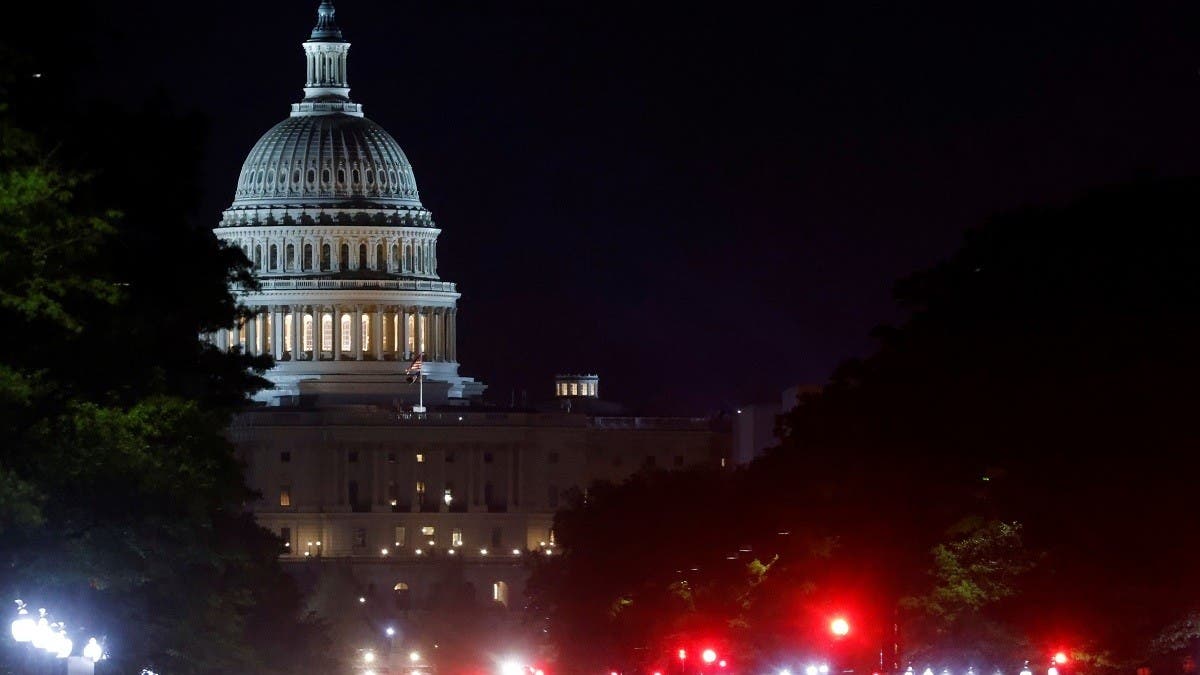US lawmakers included a range of efforts to push back against Russia and China in a massive annual defense bill released on Tuesday, including $300 million for Ukraine’s military and a statement of support for the defense of Taiwan.
The text of the fiscal 2022 National Defense Authorization Act, or NDAA, authorizes $770 billion in military spending, including provisions such as a 2.7 percent pay increase for the troops, reforms of the military justice system to combat sexual assault and initiatives to address geopolitical threats.
For all the latest headlines, follow our Google News channel online or via the app.
The NDAA normally passes with strong bipartisan support. It is closely watched by a broad swath of industry and other interests because it is one of the only major pieces of legislation that becomes law every year and because it addresses such a wide range of issues.
This year’s bill was released shortly after US President Joe Biden and Russian President Vladimir Putin held two hours of virtual talks on Ukraine and other disputes.
The 2022 NDAA includes $300 million for the Ukraine Security Assistance Initiative, which provides support to Ukraine’s armed forces, includes $4 billion for the European Defense Initiative and proposes $150 million for Baltic security cooperation.
It does not include a provision that would force Biden to impose sanctions over the $11 billion Nord Stream 2 pipeline to bring Russian gas directly to Germany. Republican lawmakers had wanted the measure included in the NDAA, arguing that the pipeline would be harmful to European allies.
Eyes on China
On China, the bill includes $7.1 billion for programs in the Pacific Deterrence Initiative and a statement of congressional support for the defense of Taiwan, as well as a ban on the Department of Defense procuring products produced with forced labor from China’s Xinjiang region.
The United States has labeled China’s treatment of its Uyghur Muslim minority in Xinjiang as genocide, and lawmakers have been pushing a ban on imports of products that may have been made with forced labor from Uyghurs. China denies abusing minorities and dismisses the genocide charge as part of slanderous assertions about conditions in Xinjiang.
The compromise text omits a proposal to subject women to the military draft that was included in earlier versions.
The proposal faced stiff opposition from socially conservative lawmakers that threatened to block the entire NDAA.
The compromise bill does include a significant overhaul of the military justice system to take decisions on whether to prosecute cases of rape, sexual assault and some other major crimes out of the hands of military commanders.
The change is the result of a years-long push, led by Democratic Senator Kirsten Gillibrand, in response to the thousands of cases of sexual assault and related crimes among service members every year, many of which are never prosecuted.
The compromise NDAA was negotiated by leaders of the House and Senate Armed Services committees after weeks of delay while Democrats and Republicans argued over what should be included in the bill.
To become law for the 61st straight year, the NDAA must pass the House and Senate and be signed into law by Biden.
Read more: US announces diplomatic boycott of 2022 Winter Olympics in China

 World2 years ago
World2 years ago
 World2 years ago
World2 years ago
 Entertainment7 years ago
Entertainment7 years ago
 World7 years ago
World7 years ago
 Entertainment7 years ago
Entertainment7 years ago






